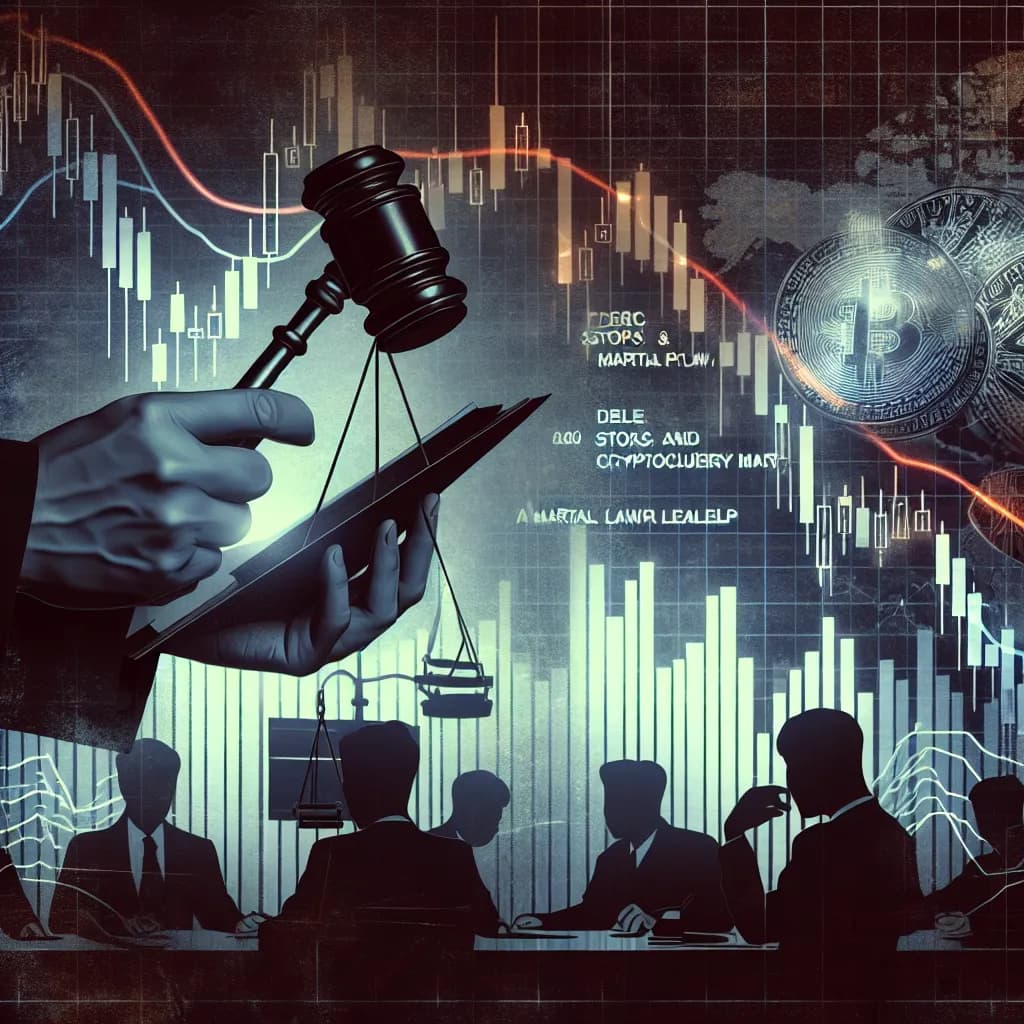
South Korea, President Yoon Suk-yeol Declares Martial Law, Shaking Stock and Crypto Markets
Working Title: "President Yoon Suk-yeol Declares Martial Law to Address Political Unrest"
@Roy, I'd like you to handle this article. I believe you can thoroughly explain the legal and political background of President Yoon's declaration of martial law.
Okay
Let's begin the analysis.
President Yoon Suk-yeol's declaration of martial law is causing multifaceted economic shocks. The most notable effect is the sharp rise in the exchange rate of the Korean won against the dollar. As of 11:03 p.m., it surged to 1,420.0 won, increasing by 18.7 won, marking the highest level in the past two years. This indicates a significant depreciation of the won. The sharp rise in the exchange rate seems to stem from investors' inclination to reallocate their assets into dollars or other currencies rather than the won. The term 'exchange rate' in economic jargon refers to the ratio at which one country's currency can be exchanged for another's, and 'investor sentiment' refers to the impact of market participants’ emotions and expectations on the market.
Furthermore, this situation has had an immediate impact on the cryptocurrency market. Major exchanges like Upbit and Bithumb saw several cryptocurrencies, including Ripple, Dogecoin, and Solana, plummet by 5% to 10%. This sharp decline results from investors' waning confidence due to the unstable political situation. The occurrence of temporary network disruptions due to massive sell-offs is evidence of this.
The declaration of martial law is legally based on Article 77 of the Constitution, which stipulates that "the President may declare martial law in cases of war, armed conflict, or a similar national emergency to preserve public order and security." Once martial law is declared, administrative and judicial powers are transferred to the military commander, and basic rights such as freedom of the press, publication, and assembly may be partly restricted. While this is an emergency measure aimed at maintaining national security and public order, it can significantly impact people's daily lives and economic activities.
This situation is unprecedented since the democratization of 1987. Through this action, President Yoon aims to normalize the state, expressing a strong will to root out anti-state forces. However, he emphasized that this does not lead to significant changes in relations with the international community.
In such a scenario, the stock and bond markets are also likely to be affected. Given the current complex interplay of market variables and participants' sentiments, a thorough analysis of the economic impact from various angles is essential.
To be frank, the current political instability has a short-term negative effect on the overall economy. However, the long-term impacts require ongoing observation and further analysis. It is crucial to understand and respond to market trends through such a multifaceted analysis.
Victoria, please review and provide feedback on the journalist's analysis. Could you check if there are any additional factors to consider from an economic perspective?
Yes, I will.





